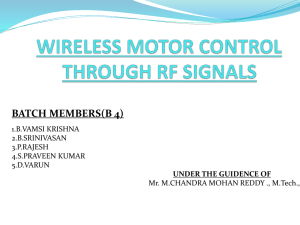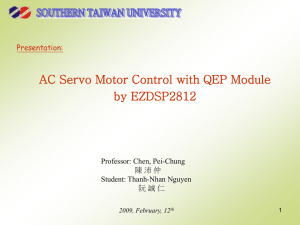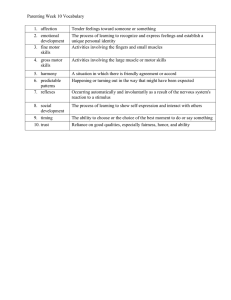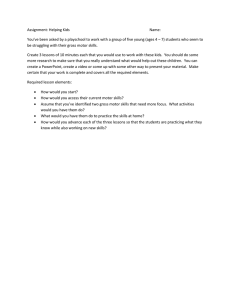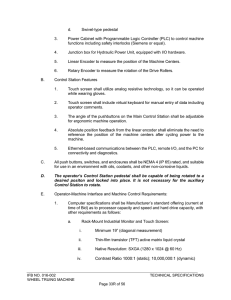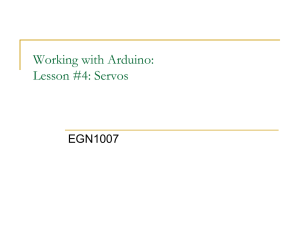Servo Motors - Oriental Motor
advertisement
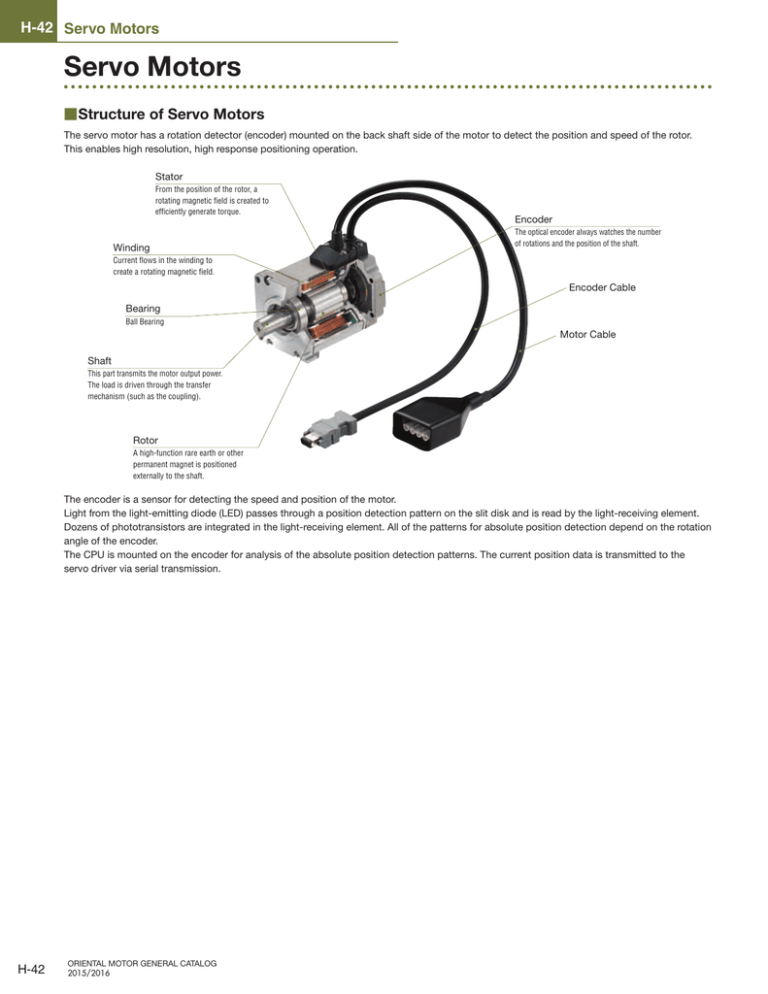
H-42 Servo Motors Servo Motors ■Structure of Servo Motors The servo motor has a rotation detector (encoder) mounted on the back shaft side of the motor to detect the position and speed of the rotor. This enables high resolution, high response positioning operation. Stator From the position of the rotor, a rotating magnetic field is created to efficiently generate torque. Winding Encoder The optical encoder always watches the number of rotations and the position of the shaft. Current flows in the winding to create a rotating magnetic field. Encoder Cable Bearing Ball Bearing Motor Cable Shaft This part transmits the motor output power. The load is driven through the transfer mechanism (such as the coupling). Rotor A high-function rare earth or other permanent magnet is positioned externally to the shaft. The encoder is a sensor for detecting the speed and position of the motor. Light from the light-emitting diode (LED) passes through a position detection pattern on the slit disk and is read by the light-receiving element. Dozens of phototransistors are integrated in the light-receiving element. All of the patterns for absolute position detection depend on the rotation angle of the encoder. The CPU is mounted on the encoder for analysis of the absolute position detection patterns. The current position data is transmitted to the servo driver via serial transmission. H-42 ORIENTAL MOTOR GENERAL CATALOG 2015/2016 Technical Reference H-43 ■Control Block Diagram of the Servo Motor A pulse signal that is externally applied (when it is the pulse input type) and the rotation detected by the servo motor encoder, are counted and the difference (deviation) is outputted to the speed control unit. This counter is referred to as the deviation counter. During motor rotation, an accumulated pulse (positioning deviation) is generated in the deviation counter and is controlled so as to go to zero. The (position holding by servo control) function for holding the current position is achieved with a position loop (deviation counter). The alternating current added from the power supply is rectified and flattened with the capacitor for conversion to direct current Motors Converter The difference in the command from the digital-analog converter (speed command) and the command speed from the F/V converter (feedback) is amplified Selection Calculations The DC voltage flattened by the capacitor is added to the primary side and controlled with a command from the excitation sequencer, and 3-phase current is supplied to the motor + The difference of the input pulse and the feedback pulse is calculated Linear & Rotary Actuators Cooling Fans Amount of Positioning Deviation + Speed Command Rotation The frequency of the feedback pulse from the encoder is converted to speed Current Command Inverter Current Control Unit Position Command Speed Control Unit Service Life Stepper Motors Encoder Operating Speed F/V Conversion Input Pulse + Deviation Counter Position Control Unit The difference of the current command and the feedback signal from the current detector is amplified Current Loop The rotor position is detected and an excitation sequence is created to maintain the power factor at 1 Rotor Position Servo Motors Standard AC Motors Brushless Motors/AC Speed Control Motors Gearheads Speed Loop Position Loop Cooling Fans The servo motor is composed of three elements: the motor, the encoder and the driver. The driver has the role of comparing the position command and the encoder position/speed information and controlling the drive current. The servo motor always detects the motor condition from the encoder position and speed information. If the motor should come to a standstill, the servo motor outputs an alarm signal to the controller for abnormality detection. The servo motor must adjust the control system parameters to match the rigidity of the mechanism and the load conditions, though in recent years, real time auto-tuning has made this adjustment easy. CAD Data Manuals www.orientalmotor.com Technical Support TEL: (800) 468-3982 E-mail: techsupport@orientalmotor.com H-43
